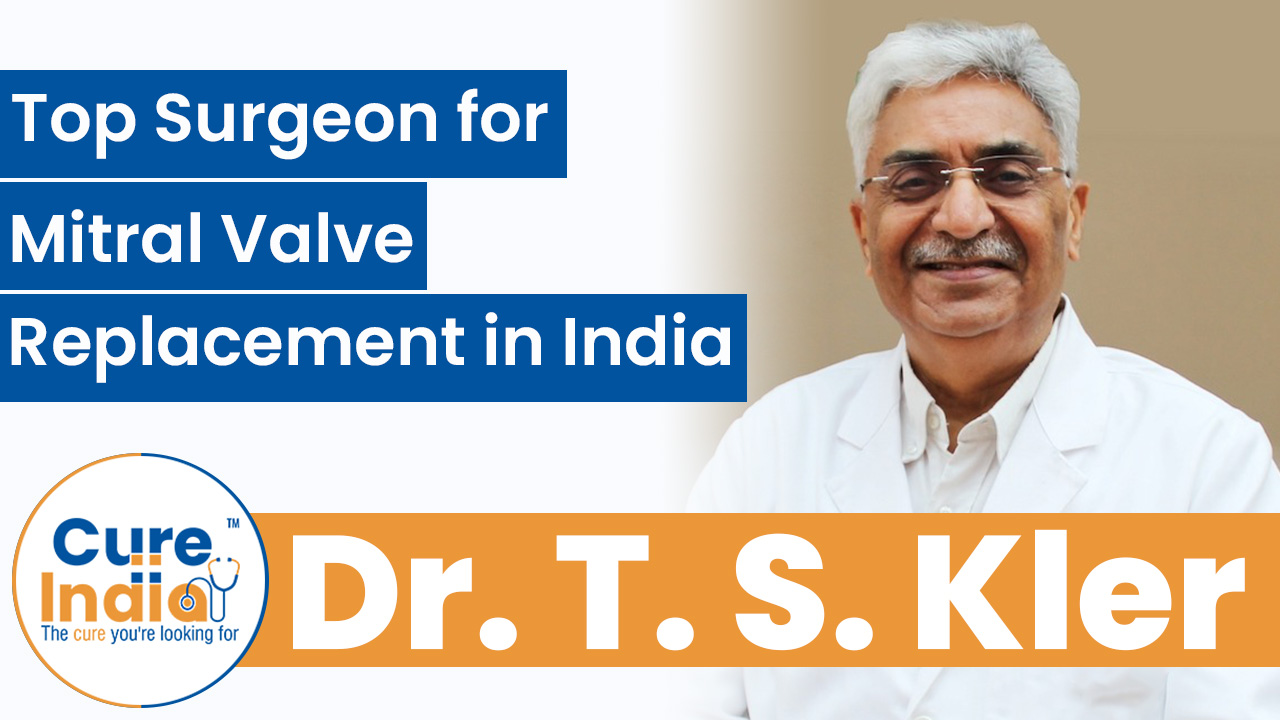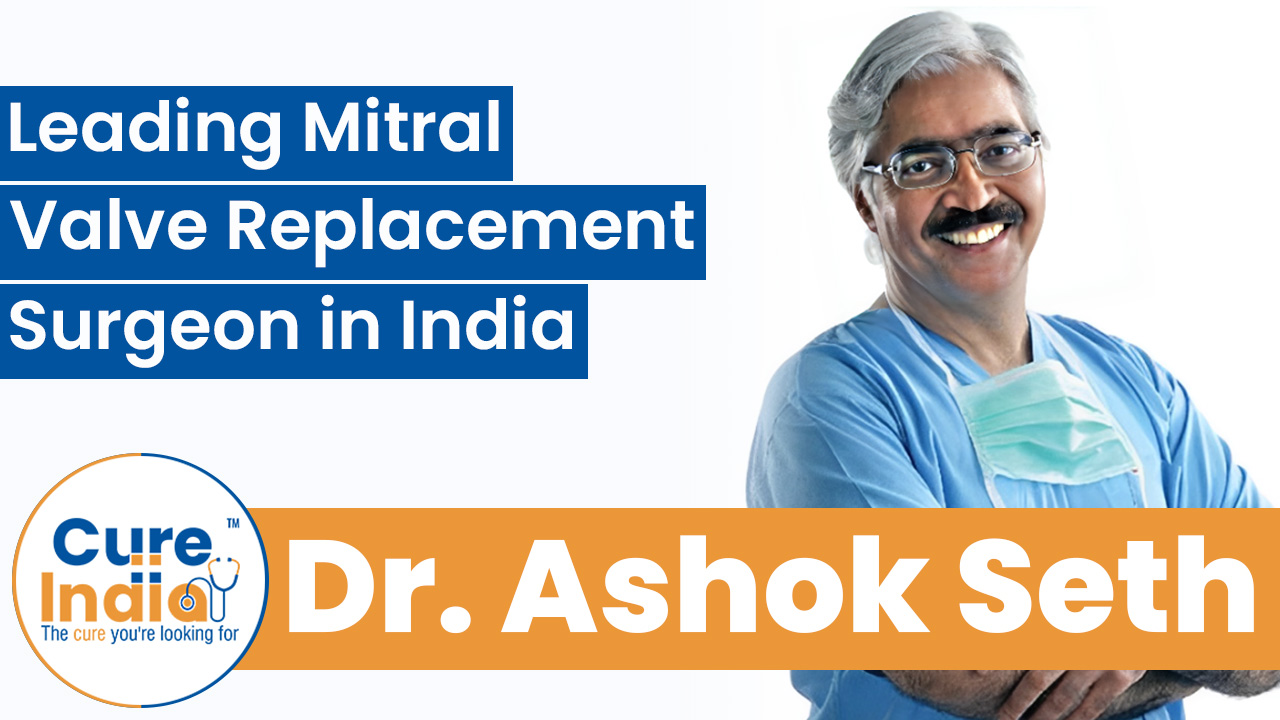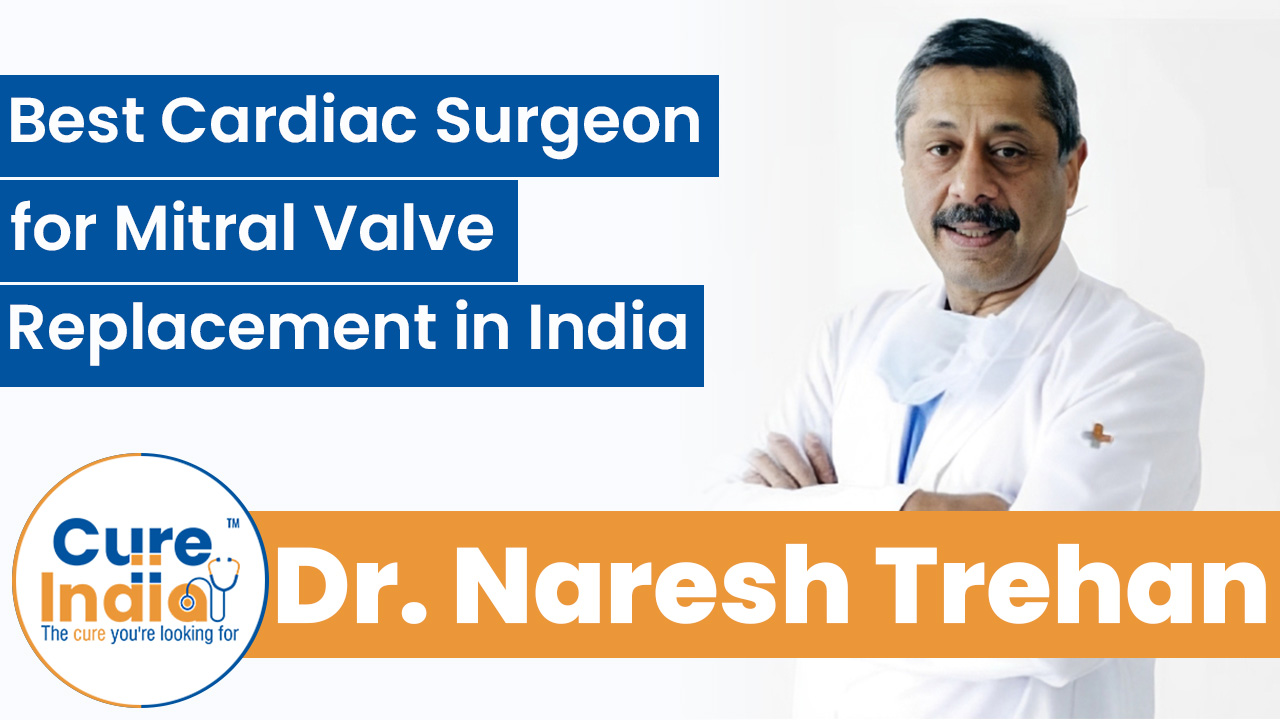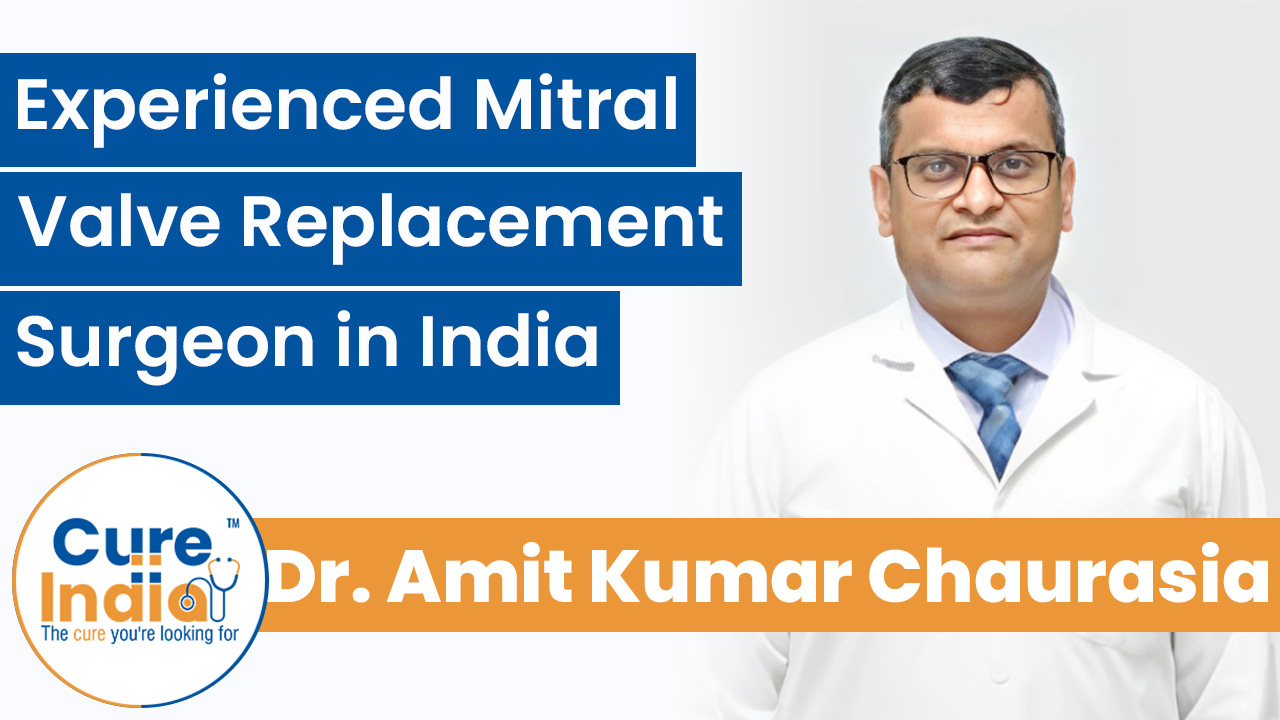

Mitral valve replacement surgery is a procedure performed to replace a damaged mitral valve with either a mechanical valve or a biological valve. The mitral valve is one of the 4 valves present in the heart. This valve is responsible for blood flow from the left atrium to the left ventricle. The position of the mitral valve lies between the left atrium and the left ventricle, hence it allows blood circulation from the left atrium towards the left ventricle. It also prevents the blood from flowing backwards into the left atrium.
When the mitral valve is no longer serving its function, you may be immediately recommended to get a mitral valve replacement surgery in India done. Untimely or delayed mitral valve repairs may lead to a worsening of the heart function, thereby leading to heart failure and eventually death.
Mitral Valve Replacement is a surgery done when the mitral valve of the heart does not work properly. The mitral valve disease can be caused by several conditions, however, the first two cases mentioned below are majorly responsive for mitral valve disease:

The symptoms of mitral valve disease develop over time as the damage to the valve increases over time. Here are a few symptoms of mitral valve disease:
There are mainly two types of valves that the heart surgeon may use during a mitral valve replacement surgery in India. Depending on the condition of your mitral valve disease, your heart surgeon may decide which valve to choose from.
These are made of artificial elements like Titanium, Teflon, Carbon. They last a long time and don't wear off in the body after replacing the original mitral valve. However, after the implantation of Mechanical valves in the body, your doctor may advise you to take blood-thinning medication for the rest of your life.
As the name suggests they are made of composite or bio-prosthetic materials, often extracted from animal tissue of a cow or a pig. These valves, however, have a lifetime of 15-20 years, which means you may be required to get a second valve replacement done later. These valves may not require you to consume blood-thinning medicines. Biological valves are more commonly used in valve replacement operations than mechanical valves.

The mitral valve replacement surgery requires precision and should be done by a specialist cardiac surgeon. CureIndia helps you choose the best mitral valve replacement doctor for your medical treatment. Most of the doctors in our associated hospitals are highly qualified surgeons with extensive experience and are active members of many international medical councils and associations. Contact CureIndia to connect with the best mitral valve replacement surgeon in India and get your procedure done at affordable costs. Let's hear from some of the best mitral valve replacement doctors in India.




A lot of people from African countries like Kenya, Tanzania and Congo are traveling to India for mitral valve repairs treatment. India has many expert cardiologists for mitral valve replacement who have amazing diagnostic and well as treatment skills. The Indian cardiology hospitals provide the best treatment for the patient’s medical condition. The cardiology hospitals are equipped with TMVR treatment, which does not require the opening of the heart. The cost of Mitral Valve Replacement in India is profitable as compared to other countries. The mitral valve replacement cost in India is mentioned below.
| Treatment | Cost in India | Stay in India |
|---|---|---|
| Mitral Valve Replacement Surgery in India | $6,000 - $9,000 | 10-12 Days |
Before your mitral valve replacement surgery in India, a strong dose of general anesthesia is first administered to you to put you into a deep sleep until the surgery is completed. As soon as you are in a deep sleep, your surgeon will proceed with the procedure. The nurse will shave and sanitize the skin on your chest.
Your surgeon will make an incision on your chest, cut around the breastbone, and spread the ribs to reach the heart. To accomplish the operation, the doctor needs your heart to be stable. To achieve this, your heart needs to be stopped temporarily. This can be achieved by using a heart-lung bypass machine. The machine is connected to your heart and it will keep the normal pumping of the blood just like the original heart does.

Your surgeon will remove the diseased mitral valve and replace it with either a mechanical (artificial mitral valve) or bio-prosthetic valve. The surgeon ensures that all the connections to the valves are properly fixed. Once the operation is completed, your surgeon will take you off the heart-lung bypass machine and your heart starts pumping normally. The incision is then closed with the stitches.
There are different approaches to perform the mitral valve replacement surgery in India. Your surgeon will decide which approach to choose based on what treatment you need.
In most of the cases, your surgeon will operate by open mitral valve replacement operation, but he/she can also operate by transcatheter mitral valve replacement. In the open operation, your doctor will make an incision of about 3 to 5 inches on the chest and cut through the breastbone, spreading the muscles and reaching the heart.
Your heart is connected to a heart-lung bypass machine which will regulate the normal pumping of your heart while your heart is temporarily stopped to perform the surgery. Once the valve is replaced, the breastbone is connected by stainless steel wires, and the incision on the chest is stitched with the sutures.
Another approach to operate the mitral valve replacement surgery is by minimally invasive mitral valve surgery which is also known as transcatheter mitral valve replacement. In this procedure, instead of one big cut, your surgeon will make multiple (1 to 4) cuts on the chest and the procedure is performed by using special tools and a camera to guide the surgeon.
After your mitral valve replacement surgery in India, you may have to spend a few days in an intensive care unit of a hospital where the nurses will keep you under observation. Your heart rate, oxygen, and breathing will be continuously monitored.
Your doctor may prescribe you medications to prevent arrhythmias- irregular heartbeats which is one of the common side effects after valve surgery. Your doctor may also prescribe you an anticoagulant drug to prevent blood clots. You will have to consume this medicine for up to 3 months if you have received a biological valve, and if you have received a mechanical valve, then you will have to consume this medicine for a lifetime.
Full recovery from mitral valve replacement surgery can take several months, which will come through the healing of the incision, rebuilding physical endurance, and regular exercising. For the first few weeks, you may feel tired and would be strictly advised to avoid physical exertion. The usual side effects of the mitral valve replacement surgery may take up to a few weeks to subside.
You will probably start to feel better nearly immediately. You will note that each day brings a slight improvement in how you feel, as your condition will progressively improve over time. To obtain the full benefits of mitral valve repairs, you must change your daily routine. You need to take some preventative measures if you do not want the condition that affects your heart valves to flare up again.
Be careful to keep your follow-up appointments with your primary care physician. You will get directions on how to take your medication, when to take it, what activities are appropriate for you to participate in, and which ones you should avoid.
Repairing a heart valve may leave you feeling as if you need to make significant adjustments to how you live your life. Following surgery, you will most likely experience a significant improvement in your physical well-being, which should last for many weeks or months. As you start to feel better, you should probably talk to your doctor about some of the details of this information further.
The following pieces of sound medical advice should be followed for the best possible result after having a heart valve replaced:
A scientific review published in December 2023 shows that the prevalence of valve disease in African countries is considerably high. The studies are carried out in countries like Rwanda, Nigeria, Ghana, Ethiopia, Tanzania, etc. It also says that the overall mortality rate is 10.48%. The healthcare system is still improving in developing countries.

In India, the medical facilities of the hospitals including good post-operative care ensure successful treatment. As compared to other countries, India provides premium healthcare facilities with best cardiac hospitals and is very cost-effective. Many people from other countries travel to India for healthcare treatment every year.
The success of any surgery depends upon various factors. Some of them are: the age of the patient, the expertise of the surgeon, patient’s health condition and lifestyle, etc. However, the success rate of mitral valve replacement surgery in India is 98%. The studies show that about 95% of people don’t need a re operation after 10 years and 90% of people don’t need reoperation after 20 years.
